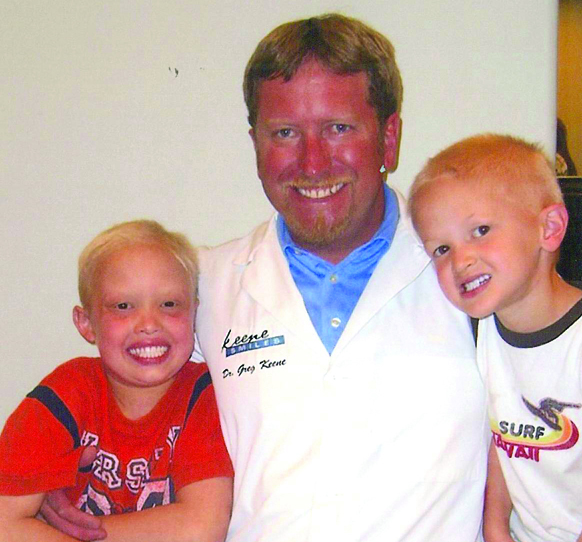
The oral manifestations of the ectodermal dysplasias are often complex, and affected individuals might benefit from a team approach to evaluation and planning for treatment.
- Do not accept all team members as being equally trained and experienced.
- Ask questions…
- about the training of key individuals on the team;
- about the format for team meetings;
- about intra-office communication among team members;
- about the pattern of referrals to specialists not on the core team;
- about the policies for payment and submission of insurance claims; and
- of the individual providers about their training and experience in treating patients affected by ectodermal dysplasias or related syndromes.
- Seek input from other people who have been treated by this team or individual provider.
The issue of provider competency is especially critical for affected individuals whose treatment plan includes dental implants. Dentists who are placing implants or doing the subsequent prosthetic treatment should have been trained at programs accredited by a nationally recognized body or academic institution. The dentist should have, whenever possible, experience managing patients affected by ectodermal dysplasias.
The American Dental Association (ADA) Commission on Dental Accreditation reviews and accredits educational programs in the dental specialties. Programs in oral and maxillofacial surgery, periodontology and prosthodontics have specific educational requirements for the placement of implants. Programs in prosthodontics have specific guidelines in the prosthetic treatment of implant cases.
- Oral health providers should give individuals a detailed treatment plan, with specific cost estimates, and alternatives or options for care.
- Oral health care providers should encourage individuals to seek independent opinions and should be receptive to alternative opinions from other providers.
- Records, especially radiographs, should be shared among providers.
- The written estimates of cost should stipulate clearly which aspects of treatment are directed toward or necessitated by the underlying disorder and therefore should be covered by medical insurance.
- Providers should provide multiple treatment plan options that include the advantages and disadvantages of each plan. All plans may be acceptable but alternative treatment plans allow the patient and or parents to make an informed consent considering the cost and personal commitment.
This article is adapted from content in our Parameters of Oral Health Care for Individuals Affected by Ectodermal Dysplasias.
Related Article
[…] 8 Things You Should Expect From Your Dental Care Team […]
[…] 8 Things You Should Expect From Your Dental Care Team […]
[…] 8 Things You Should Expect From Your Dental Care Team […]
Are there dental professionals in Charleston South Carolina who are willing to work onchildren who need dental prosthetics?
Are there dental professionals in Charleston South Carolina who are willing to do prosthetic dentures on young children?
Hi, Teasie. Can you email Kelley at kelley@nfed.org with this request? She’s happy to send you a list of care providers. Thanks! ~ Jodi, Director, Marketing and Communications, National Foundation for Ectodermal Dysplasias.